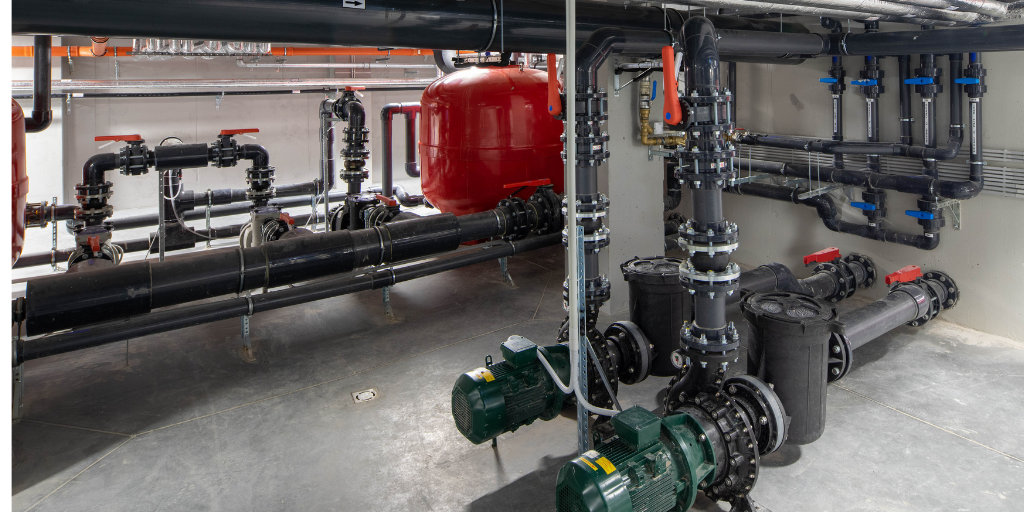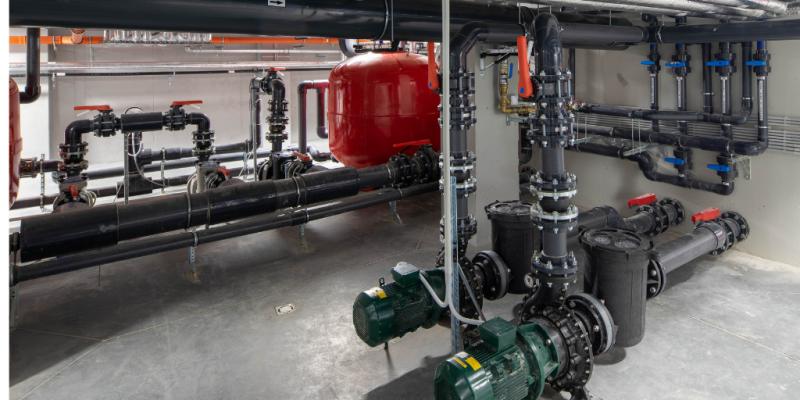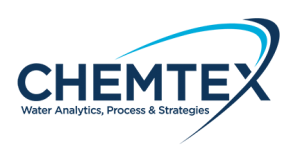
Tolerable Iron Levels in Glycol Loops
Many HVAC systems are treated with glycol. Glycol-based fluids are commonly used for secondary cooling and heating applications, as well as for freeze and burst protection of pipes, and for various defrosting, deicing, and dehumidifying applications.
However, operators must note: Glycol systems have potential for corrosion issues. The risk of corrosion is exacerbated by some circumstances, such as improper cleaning at startup; unsuitable glycol choices such as uninhibited glycol or automotive antifreeze; and the loss or addition of makeup water in the system.
Overall, neglect of the system and failure to properly treat systems can cause serious corrosion to iron, which will contribute to long term problems.
Minimizing Iron Corrosion in Glycol Systems
Regular monitoring of glycol loop systems will minimize corrosion issues. Monitoring should include regular testing of iron levels. Ideally, levels should be less than 2 ppm. Sometimes iron may be slightly higher in glycol systems, but the level should be less than 4 ppm.
Monitoring shouldn’t just address the ppm levels, but should also watch out for changes – especially any trend of increased levels. We also recommend using corrosion coupons to monitor the corrosion rate.
Filtration is crucial, to remove circulating iron and keep the system clean.
There are other manufacturers of glycol, here is some information from Dow.
Here how Dow describes the function of their DOWTHERM inhibited fluids, and how they protect against corrosion:
DOWTHERM SR-1 and DOWTHERM4000 glycol-based fluids contain specially formulated industrial inhibitor packages that are effective in preventing corrosion of metals commonly used in HVAC, food processing, and process heat transfer equipment. These inhibitors prevent corrosion of metals in two ways.

First, they passivate the surface of metals, reacting with the surface to prevent acids from attacking it. Unlike inhibitors used in some other fluids, Dow inhibitors perform this passivation process without fouling heat transfer surfaces. The inhibitors in automotive antifreeze, on the other hand, contain silicates that coat heat transfer surfaces with a thick silicate gel that reduces heat transfer.
Second, the inhibitors in DOWTHERM fluids buffer any acids formed as a result of glycol oxidation. All glycols produce organic acids as degradation products. This degradation is accelerated in the presence of oxygen and/or heat. Left in solution, such acids lower pH and contribute to corrosion. Properly formulated inhibitors such as those in DOWTHERM fluids neutralize these acids.
As always, Chemtex is on your side, ready, willing and qualified to help you resolve issues in your glycol loops. If there are concerns about corrosion in a system or if you need assistance in changing the concentration of glycol – we can help. The same goes for any other concerns you may have with you HVAC and water treatment. Contact us online or give us a call any time.



/NQA-ISO-9001-Logo-ANAB.jpg)